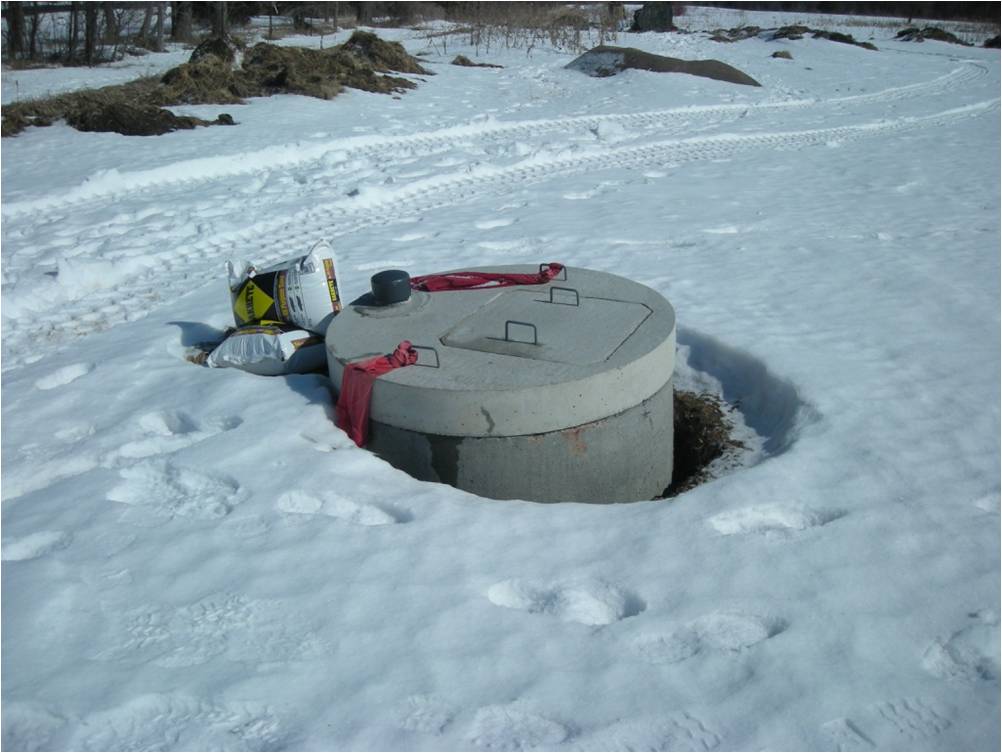Performance of Large Diameter Wells
 Residential large diameter drinking water wells are at a higher risk of contamination from surface water impacts than drilled wells. The possibility of a higher incidence of contamination of large diameter wells is attributed to site selection and construction problems such as leaking joints in the well casing, ineffective annular sealant placed between the well casing and the formation, poorly fitted cover with an access lid that promotes contaminant entry and with inadequate air filtration, well location down gradient of septic effluent sources, and depth limitations due to improper equipment used to advance the well which results in shallow wells often situated in topographical lows.
Residential large diameter drinking water wells are at a higher risk of contamination from surface water impacts than drilled wells. The possibility of a higher incidence of contamination of large diameter wells is attributed to site selection and construction problems such as leaking joints in the well casing, ineffective annular sealant placed between the well casing and the formation, poorly fitted cover with an access lid that promotes contaminant entry and with inadequate air filtration, well location down gradient of septic effluent sources, and depth limitations due to improper equipment used to advance the well which results in shallow wells often situated in topographical lows.
Historically, residential drinking water well performance studies have focused on existing wells; however, uncertainty in the actual well construction methods and materials, well age and maintenance efforts have been problematic. A field and laboratory study is underway to assess the performance of several design changes that were thought to improve the integrity of large diameter drinking water wells, and to determine whether one design is more prone to atmospheric and surface water contamination than the other.
Secondary objectives of this study are to determine a best casing material and cleaning method for the removal of biofilm from well casing materials, and determine whether cement-bentonite grout would make a suitable annular sealant.